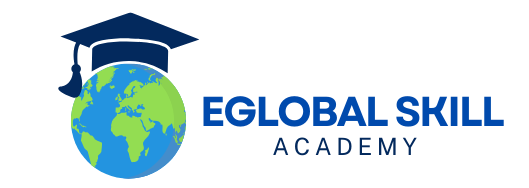
Training Programme Overview
This programme equips participants with foundational interpersonal skills essential for thriving in diverse professional environments. Through evidence-based techniques and practical simulations, attendees will learn to communicate effectively, navigate emotions, resolve conflicts, and foster collaborative relationships—critical for success in remote, hybrid, or high-stress settings.
Designed for universal relevance, the curriculum bridges industry gaps by focusing on human-centric competencies needed to build trust, enhance teamwork, and drive organisational resilience. Participants will gain actionable tools to transform workplace interactions and adapt ethically across cultural contexts.Training Programme Objectives and Benefits
Programme Content
1. Communication
- Verbal, non-verbal, written and active listening.
- Body language, eye contact, facial expressions.
- Professional emails and reports.
2. Emotional Intelligence
- Self-awareness
- Empathy
- Self-regulation
3. Teamwork collaboration
- Inclusivity
- Reliability
- Flexibility
- Contributing to group goals
4. Conflict Resolution
- Negotiation
- Diplomacy
- Problem-solving
- Finding common ground
5. Professional & ethical behaviour for adaptability
- Professional behaviour
- Ethical conduct
- Being flexible in various social situations
- Handling unexpected interactions smoothly
6. Feedback Exchange
- Giving constructive criticism
- Receiving feedback
Programme Objectives and Benefits
Programme Objectives
Participants will learn to:
- Master multi-channel communication: Apply active listening, clear verbal/non-verbal cues, and professional writing.
- Develop emotional intelligence: Recognise personal/colleagues’ emotions and respond with empathy.
- Strengthen collaborative abilities: Foster inclusivity, reliability, and flexibility in teams.
- Resolve conflicts constructively: Negotiate solutions focusing on issues, not personalities.
- Adapt professionally: Navigate cultural differences and unexpected interactions smoothly.
- Exchange feedback effectively: Deliver and receive critiques constructively.
- Apply ethics in interactions: Uphold integrity in all workplace scenarios.
Benefits of attending this training?
- Enhanced team productivity through efficient collaboration.
- Reduced misunderstandings via clear communication.
- Stronger workplace relationships built on trust and empathy.
- Lower conflict escalation through proactive resolution.
- Improved cross-cultural competence in global/multicultural teams.
- Higher employee engagement and retention via psychological safety.
- Career advancement by demonstrating leadership-ready soft skills.
Who Should Attend
- Frontline Staff: Improve client interactions, de-escalate conflicts, and express ideas clearly.
- Team Leaders & Supervisors: Strengthen feedback delivery, resolve team disputes, and model emotional intelligence.
- Public Service Officers:Navigate citizen interactions ethically, collaborate across departments, and manage public feedback.
- HR & L&D Professionals:Gain frameworks to design internal soft-skills initiatives and conflict mediation protocols.
- Remote/Hybrid Workers:Master written communication, virtual active listening, and digital collaboration.
- New Hires & Graduates:Accelerate integration into teams, receive feedback productively, and build professional presence.
- Staff:Exhibit professionalism in the workplace.
Training Duration
Five half-day sessions across five weeks.
Certificate of Completion
A Certificate of Completion is awarded upon full attendance and achievinga minimum of 70% on the formal assessment.
Training Programme Fee
Free. Value at USD $47
| Interpersonal Skills + Training Duration: Five half-day sessions across five weeks Session Dates First Second Third Forth Fifth Batch 1A: Thursday, 28 August Thursday, 4 September Thursday, 11 September Thursday, 18 September Thursday, 25 September Batch 1B: Thursday, 28 August Thursday, 4 September Thursday, 11 September Thursday, 18 September Thursday, 25 September Batch 2A: Thursday, 13 November Thursday, 20 November Thursday, 27 November Thursday, 4 December Thursday 11 December Batch 2B: Thursday, 13 November Thursday, 20 November Thursday, 27 November Thursday, 4 December Thursday 11 December |
Batch A and Batch B Sessions Time Chart
Batch A Sessions are Best for the Following Countries +
Live batch A session will be best suited to you if you are in the following regions, showing the local starting time
| Europe | Africa | Middle East | Asia | Australia | |||||
| United Kingdom | 9:00 am | Gambia | 8:00 am | Turkey | 11:00 am | Pakistan | 1:00 pm | Australia (Perth) | 4:00 pm |
| Ireland | 9:00 am | Ghana | 8:00 am | Iraq | 11:00 am | India | 1:30 pm | Australia (Sydney) | 6:00 pm |
| Portugal | 9:00 am | Liberia | 8:00 am | Iran | 12:30 pm | Sri Lanka | 1:30 pm | Papua New Guinea | 6:00 pm |
| Switzerland | 10:00 am | Nigeria | 9:00 am | Dubai (UAE) | 12:00 pm | Bangladesh | 2:00 pm | Solomon Islands | 7:00 pm |
| Sweden | 10:00 am | Namibia | 10:00 am | Thailand | 3:00 pm | Fiji | 8:00 pm | ||
| Poland | 10:00 am | Lesotho | 10:00 am | Vietnam | 3:00 pm | New Zealand | 8:00 pm | ||
| Italy | 10:00 am | South Africa | 10:00 am | Indonesia | 3:00 pm | ||||
| Malta | 10:00 am | Botswana | 10:00 am | Singapore | 4:00 pm | ||||
| Greece | 11:00 am | Kenya | 11:00 am | Philippines | 4:00 pm | ||||
| Uganda | 11:00 am | China | 4:00 pm | ||||||
| Egypt | 11:00 am | Taiwan | 4:00 pm | ||||||
| Japan | 5:00 pm |
Batch B Sessions are Best for the Following Countries +
Live batch B session will be best suited to you if you are in the following regions, showing the local starting time
North America South America
| United States (Pacific) | 8:00 am | Mexico | 9:00 am |
| United States (Mountain) | 9:00 am | Jamaica | 10:00 am |
| United States (Central) | 10:00 am | Guyana | 11:00 am |
| United States (East) | 11:00 am | Brazil | 12:00 pm (noon) |
| Canada (Vancouver) | 8:00 am | Argentina | 12:00 pm (noon) |
| Canada (Toronto) | 11:00 am |

